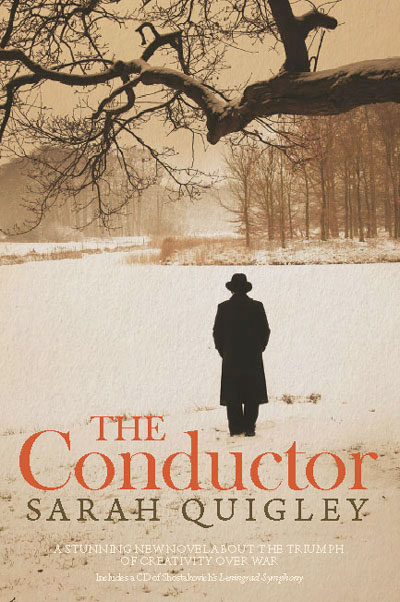The Conductor
The Conductor
In June 1941, breaking the non-aggression pact with Russia, Nazi troops march on Leningrad and surround it. Hitler’s plan is to shell, bomb, and starve the city into submission. Most of the cultural elite are evacuated early in the siege, but Shostakovich, one of Russia’s most famous composers, stays on to defend his city, digging ditches and fire-watching. At night he composes a new work.
But eventually Shostakovich and his family are forced to evacuate, while Karl Eliasberg – the shy and difficult conductor of the second-rate Radio Orchestra – and his musicians are left behind to suffer an almost unendurable winter. When the finished score of Shostakovich’s work is flown over enemy lines back into the city, Eliasberg and his orchestra are ordered to regroup. Starving and weak, they face the monumental task of rehearsing and performing the Leningrad Symphony.
Against all odds, their historic performance took place in August 1942, relayed by loudspeakers to the front lines as proof that Leningrad would never surrender.
Quigley says, ‘I’ve always been interested in Shostakovich and his music. Creating art is hard enough at any time, let alone coping with a repressive Soviet regime and then a war. The historic performance of the ‘Leningrad’ Symphony caught my imagination. In one way it’s a very Russian story – the resilience, determination, and passion for art – but it also has a universal message. It shows that music can touch people’s hearts and sustain them through the darkest of times.’
‘This extraordinary novel is a symphony on the power of love – the love of music, home, family, city, and Quigley’s love of writing. Each sentence carries the weight of these loves, but each sentence is characterised by an unexpected moving lightness of being. A triumph on every level.’
– Paula Green, Canvas Magazine
‘I felt utterly transported to a place and a time – Leningrad in the grip of winter and the brutal siege that saw its citizens stripped of hope and dignity, eating boiled shoe leather to survive, the life slowly being crushed out of them. It’s powerful material that might have been misused by a more heavy-handed writer but Quigley has a lightness and clarity both in the way she uses words and story.’
– Nicky Pellegrino, New Zealand Herald
‘The Conductor reads like a proper, up-all-night page turner, but it also goes deeper than that, conveying the extraordinary life-saving properties of music, and hope.’
– The Observer

